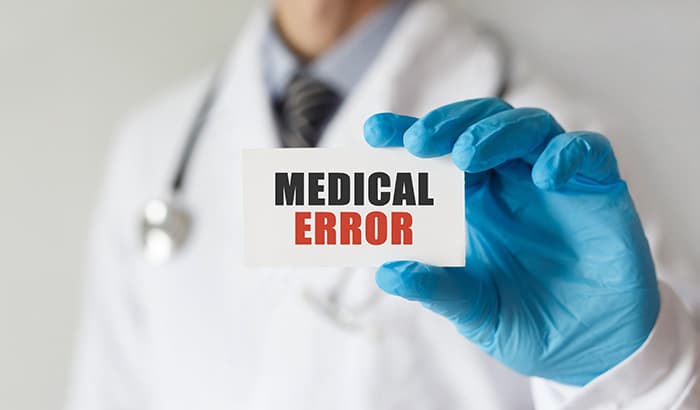Medication errors injure thousands of people every year in the U.S., but fortunately, there are ways to protect yourself against this statistic.
Continue reading to learn more about medicinal errors and ways you can take an active role in preventing this from happening to you.
What are Medication Errors?
According to the National Coordinating Council for Medication Error, medication errors are preventable events that can cause or lead to inappropriate medication use or patient harm. This can be caused by a healthcare professional, patient, or consumer. Unfortunately, these errors are quite common. The U.S. Food and Drug Administration (FDA) shared that they receive more than 100,000 reports each year associated with a suspected medication error.
How do Medication Errors Happen?
There are many ways medication errors can occur throughout the medication-use system. The following are some of the most common scenarios:
- While prescribing a drug
- Upon entering information into the computer
- When the drug is being prepared
- When the drug is dispensed
- When the drug is being taken
Harmful Results
This is a serious topic of conversation within the medical community because the results can be incredibly harmful. Serious outcomes may include:
- Life-threatening situations
- Death
- Hospitalization
- Disability
- Birth defect
Four Tips for Prevention
Although the effects of these errors can be deadly, many organizations are working tirelessly to reduce this problem. In the end, knowledge is your best defense.
Ask Questions
Whenever you start a new medication, be sure to know the answers to the following questions as outlined by Mayo Clinic:
- What is the name of the medication?
- What is it supposed to do for me and how long will it be until I see results?
- What is the prescribed dose and how long should I be taking it?
- What should I do if I miss a dose or accidentally take more than the recommended dose?
- Is there anything I should avoid while taking this medicine?
- What are the possible side effects and what should I do if they occur?
Medication Reconciliation
Medication reconciliation is a safety strategy that involves comparing the medications you are already taking to the new ones you are being prescribed. This should be done at every transition of care in which new drugs are introduced or refills are requested. Be sure to be transparent with your healthcare provider about which drugs you are currently taking, if you are allergic to any medications, or if you might be pregnant.
Avoid These Common Mistakes
- Confusing ear drops and eye drops
- Chewing non-chewable medication
- Cutting up pills
- Using the wrong measuring spoon
Practice Safe Habits
Here are a few safety habits you should implement if you currently take any kind of medication:
- Keep an up-to-date list of all your medications
- Keep them in their original containers
- Save information sheets
- Use the same pharmacy for all prescriptions
- Double check prescriptions labels when you pick them up
- Never take someone else’s prescription
Flickinger • Boulton • Robson • Weeks is Here for You
If you or a loved one have been injured because of a medication error caused by a healthcare professional, you need the help of an experienced medical malpractice attorney. Flickinger • Boulton • Robson • Weeks assists clients in holding careless doctors, technicians, and pharmacists accountable and will fight to help you receive the compensation you deserve.
Our offices are located in Provo and South Jordan, Utah. To find out how our attorneys can help, please contact us today to schedule your free consultation.



